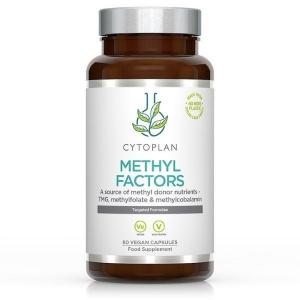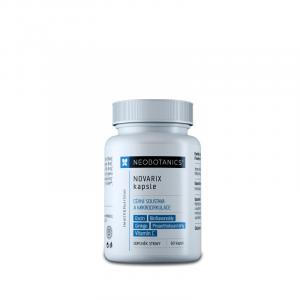
How to Gain Weight in the Face Naturally and Restore Cheek Volume

How to Healthily Gain Weight in the Face and Restore Fullness to the Cheeks
In an era when most health and lifestyle articles focus on how to lose weight, the seemingly overlooked topic of how to gain weight in the face might appear unusual or even nonsensical. But for many people, the loss of volume in the face is a real issue. Whether the cause is rapid weight loss, genetics, stress, or health complications, sunken cheeks and loss of facial fat can affect not only appearance but also psychological well-being.
The desire for fuller cheeks is not just a matter of aesthetics. Facial fullness is often perceived as a sign of vitality and health. And while plastic surgery or fillers can offer a quick fix, more people are seeking natural ways to naturally "fill out" the face.
Why Does the Face Lose Volume?
Loss of facial fat is a natural part of aging – subcutaneous fat gradually disappears, and the skin becomes thinner and less elastic. In younger people, it can also be caused by sudden weight loss, dehydration, unbalanced diet, stress, or even chronic illness. The face may appear tired, cheeks may hollow, and circles under the eyes become more pronounced, creating an overall "exhausted look."
Moreover, the human brain often associates a rounder and fuller face with youth and health. It’s not just vanity – the effort to restore the natural appearance of the face is entirely understandable.
Is It Possible to Gain Weight Only in the Face?
This is perhaps the most common question. Unfortunately, the body functions as a whole, and it is not possible to gain weight in just one area – such as only in the face – without a general increase in body weight. However, there are several approaches that can support the growth of subcutaneous fat and improve facial appearance without necessarily leading to noticeable weight gain throughout the body.
The foundation is always a balanced and energy-rich diet, sufficient fluid intake, and an overall healthy lifestyle. Genes also play an important role – some people naturally have a slimmer face, while others retain fullness even at an older age or after weight loss.
What Can Help Naturally Gain Weight in the Face?
Changing the appearance of the face requires patience. There is no magic pill, but a combination of several habits can yield surprising results:
1. Diet Rich in Healthy Fats and Proteins
Avoiding unhealthy sugars and saturated fats is generally beneficial, but if the goal is to gain weight, it’s crucial to indulge in quality and nutritious calories. Avocado, nuts, seeds, olive oil, tahini, or fatty fish like salmon contain healthy fats that help create subcutaneous fat – even in the face.
Add to that plant or animal proteins – lentils, chickpeas, tofu, eggs, organic yogurts, or cottage cheese. Proteins help build muscles and regenerate tissues, which is also important for healthy skin.
Try making a smoothie with avocado, banana, nut butter, and plant protein – not only does it taste great, but it's a calorie bomb full of nutrients that helps with natural weight gain.
2. Hydration – The Basis of Fullness
Lack of water can cause the skin to become dull, tired, and lose elasticity. Facial skin is very sensitive to dehydration, so it's important to drink enough fluids – ideally, plain water, unsweetened teas, or natural juices.
People who have started paying more attention to their hydration often notice that their face appears fuller and healthier after just a few weeks.
3. Facial Yoga and Massages
Just as we exercise the body, we can exercise the muscles in the face. Facial yoga, which includes various expressions, breaths, and muscle stretching, can help firm contours, promote blood circulation, and optically "plump" the cheeks.
A short daily routine – such as "inflating" the cheeks with air, alternating smiling, pressing the tongue against the roof of the mouth, or massaging fingers along the cheekbones – can have a long-term effect.
Similarly effective are facial massages, ideally using natural oils – argan, jojoba, or almond. A gentle massage in the evening before bed supports blood circulation and skin regeneration.
4. Healthy Sleep and Stress Management
Stress and lack of sleep have a direct impact on facial appearance. During stress, the body produces cortisol, which increases fat breakdown – often precisely in the face. Moreover, poor sleep disrupts cell renewal, leading to a tired and saggy appearance.
Try establishing a regular sleep schedule, avoiding blue light before bed, and engaging in activities that reduce tension – yoga, meditation, breathing exercises, or nature walks.
5. Natural Supplements and Herbs
Some dietary supplements can support a healthy skin appearance and subcutaneous fat production. Collagen, hyaluronic acid, vitamin E, zinc, omega-3 fatty acids, or B-complex vitamins are known to promote skin elasticity and natural volume.
Try our natural products
Similarly, adaptogenic herbs like ashwagandha, maca, or reishi can help the body better manage stress, which positively reflects on appearance.
Practical Inspiration - Slow Change with Lasting Effect
One common story is that of Lucie, a 29-year-old graphic designer who lost significant face volume after rapid weight loss. "People told me I looked sick. Yet I was just trying to eat healthily and exercise," she recalls. Lucie decided to focus on naturally restoring facial volume – she started eating more healthy fats, exercising her face, drinking more water, and sleeping at least 7 hours a night. After two months, she noticed the first changes – her cheeks were fuller, her cheekbones more pronounced, and even her skin appeared more youthful.
Her experience is proof that change can come if we give the body the necessary conditions.
"When you feel good in your skin, your face reflects it – that is your greatest calling card," says nutritionist and author of a book on natural beauty, Petra Lamschová.
What Not to Do?
In an attempt to quickly gain weight in the face, some resort to consuming unhealthy foods high in sugar and artificial fats. You might gain weight in the short term, but in the long run, it sets you up for health problems – acne, inflammation, fatigue, or weakened immunity.
Forget about miracle creams that supposedly "fill" the face – without the right diet and lifestyle, they will have no lasting effect.
Lastly – consult a doctor if facial volume loss occurred suddenly and without an apparent cause. Sometimes there may be a hormonal disorder or other hidden illness that needs to be addressed professionally.
The face is a reflection of our health and lifestyle. A fuller face is not just a matter of appearance, but often a key to how we like ourselves and how others perceive us. And while the path back to fullness may be gradual, with patience and care, everyone has a chance for success.







